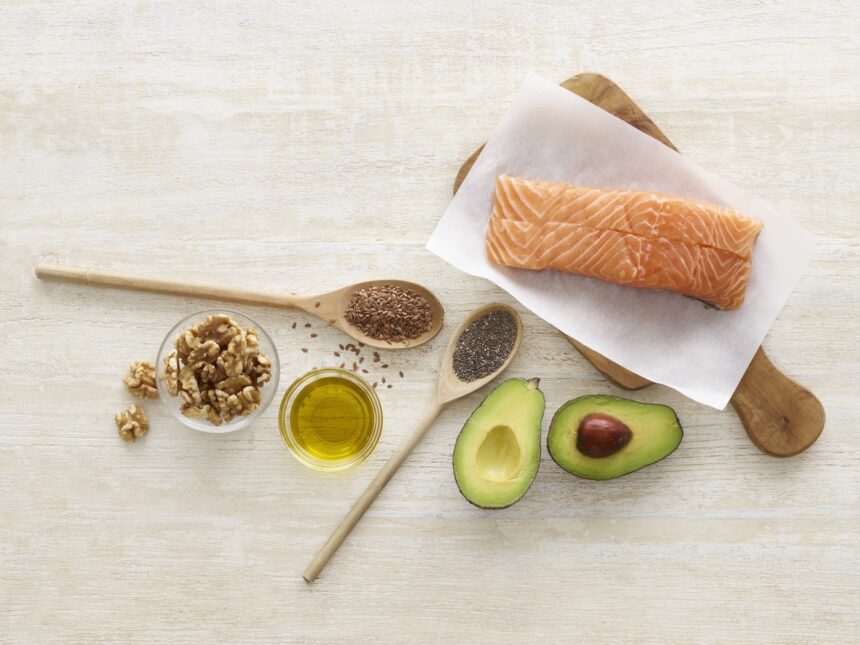Yup, keto has truly gone mainstream, and its momentum isn’t showing any signs of slowing. But given that the diet has been around since the 1920s, when it was developed by doctors as an epilepsy treatment, why did its star rise so high this year?
Well, the Hollywood element probably did have something to do with it, says Kristen Mancinelli, MS, RDN, and author of The Ketogenic Diet: A Scientifically Proven Approach to Fast, Healthy Weight Loss. “There have been some celebrities who have talked about being on a ketogenic diet, so that has made something of a splash,” she says. (A short list: Alicia Vikander, Vanessa Hudgens, Jenna Jameson, Kourtney Kardashian, even Vinny from Jersey Shore.)
But that’s probably not the key factor in keto’s rapid ascent, Mancinelli says. She points out that the buzz around the keto diet has been slowly building for the past several years. “I think it really started in 2014 or 2015, when that big meta-analysis came out looking at studies that had aimed to determine the link between saturated fat and heart disease—they all basically came up with no link,” she recalls. “In the nutrition and medical science community, there was a slow move towards saying, ‘Okay, villainizing fat is actually having this unintended result of making people over-consume carbohydrates.’ That really was the foundation.”
From there, she says, we started to see media coverage about the distinction between good fats and bad fats, and a growing number of doctors across the country began to recommend that their patients eat more fat and less carbs. “I’ve had a lot more physicians refer patients to me in the last nine months to a year,” she says. “They say that they’ve read about the keto diet and they know it’s really effective for weight loss.” Add all of this up, says the dietician, and it’s been “the perfect storm” of factors leading keto to blow up.
“I’ve had a lot more physicians refer patients to me in the last 9 months to a year. They say that they’ve read about the keto diet and they know it’s really effective for weight loss.”—Kristen Mancinelli, MS, RDN
The keto obsession is especially surprising given how strict it is—you’re meant be eating around 70 percent fat and less than 30 grams of carbs per day—and how many not-so-desirable side effects it can produce. (Think diarrhea, bad breath, potential skin problems, and the keto flu.) Yet most people aren’t just trying keto and abandoning it after a few days. In many cases, they’re sticking to it for the long term.
So what exactly is the appeal? Well, the ketogenic diet provides some concrete benefits really really quickly, explains Josh Axe, DNM, DC, CNS, and author of the upcoming book Keto Diet: Your 30-Day Plan to Lose Weight, Balance Hormones and Reverse Disease. “Although some people have a rocky start while initially transitioning into ketosis [when your body burns fat rather than carbohydrates for fuel], once in ketosis they can expect to see some impressive results” he says. People who go on the diet for weight management, Dr. Axe says, often see noticeable results within a week or two without having to count calories or exercise. Other much buzzed-about benefits of the keto diet include increased energy and mental clarity, improving symptoms of conditions like type 2 diabetes and PCOS, reduced inflammation, and balanced blood sugar.
Here’s what a top RD has to say about the benefits of the keto diet:
However, many other medical experts stress that there is still a lot we don’t know about the keto diet. That’s because many studies looking at these benefits (like reduced inflammation) have been done on mice, not on people—so any results may not necessarily translate to humans. And most human clinical trials have only looked at how the diet affects people (usually children) with seizure disorders, which doesn’t reflect how it could impact the bodies of healthy adults. Even when it comes to the merits of going low-carb…well, the jury’s still out. Two large studies published this year have found conflicting evidence about whether or not going low-carb or low-fat is better for weight management. And some health experts warn that cutting out carbs could also cut an important source of dietary fiber (which is crucial for a healthy metabolism and gut).
Yet the anecdotal evidence in favor of keto (as well as the human studies that do support its benefits) continues to be compelling. “Most people feel a lot better,” says Mancinelli. “[My clients will say] ‘Oh, my joints used to hurt and now they don’t, I have more energy, my brain functions better.'” And with more human studies, hopefully those anecdotal benefits will become more and more understood.
What’s on deck for the keto diet in 2019?
Although it may seem like we’ve reached peak keto, the experts I spoke with feel this is just the beginning. Mancinelli says we can expect to find more restaurant items and packaged foods marketed as being keto-friendly in 2019—something we’re already seeing with Know Brainer’s keto coffee creamers, Picnik’s bottled butter matcha, and the continued rise of cauliflower everything.
“People now demand keto options in every aisle of the grocery store, but unfortunately there aren’t many choices right now,” says Perfect Keto founder Anthony Gustin DC, MS, CSCS. “When it becomes that easy, people are going to have so much more success than they’re already having.”
Both he and Mancinelli warn that very few keto-branded products and meal-delivery services are actually ketogenic in the strictest sense of the word. “They’re higher fat than normal, but [a lot of them] are mostly centered around vegetables,” Mancinelli says. “That’s good, but it’s not really ketogenic.” (Since many vegetables like corn, peas, and squash are high in carbs by keto standards, Mancinelli says eating too many of them can make it harder to stay in ketosis.)
“Getting the most from the ketogenic diet takes an open mind, patience, and education.” —Josh Axe, DNM, DC, CNS
Keto is also a really difficult diet to adopt and follow (remember the whole 70 percent fat thing?!), which is why Dr. Axe predicts an uptick in keto education platforms this coming year. “We will likely see a number of keto diet programs offered that introduce people to the ketogenic lifestyle, give them access to an online community that offers around-the-clock support, provide ideas for meal planning and recipes, and answer common questions that KD newbies tend to have,” he says.
These could also offer support for ketogenic lifestyle hacks like intermittent fasting—which Mancinelli sees as the next frontier of the diet’s evolution. “It’s easier to do [than eating strictly keto],” she says, noting that fasting for between 16 and 24 hours is another way of creating ketosis in the body, and it may come with longevity-enhancing benefits as well. She actually encourages her clients to do this rather than stay keto long-term, as there is limited research available about how the diet affects the body over extended periods of time.
But no matter how much hype continues to build around keto, Dr. Axe hopes that it continues to maintain its reputation as a healthy lifestyle, rather than a quick fix. “You want to approach the keto diet holistically,” he says. “The latest research regarding the keto diet tells us that the best results are achieved when people emphasize eating clean, whole foods, as opposed to processed meats and oily junk foods.” (To be fair, that same study found that to be true of low-fat diets, too.)
“Getting the most from the ketogenic diet takes an open mind, patience, and education,” Dr. Axe adds. “But in the end, the results are proving to be worth it.” And it encourages you to eat something called fat bombs—who can argue with that?
These 9 ketogenic recipes will bring you comfort and joy over the holidays—candied pecans, anyone? Or if you’re more of a savory person, try these cheesy keto waffles.









